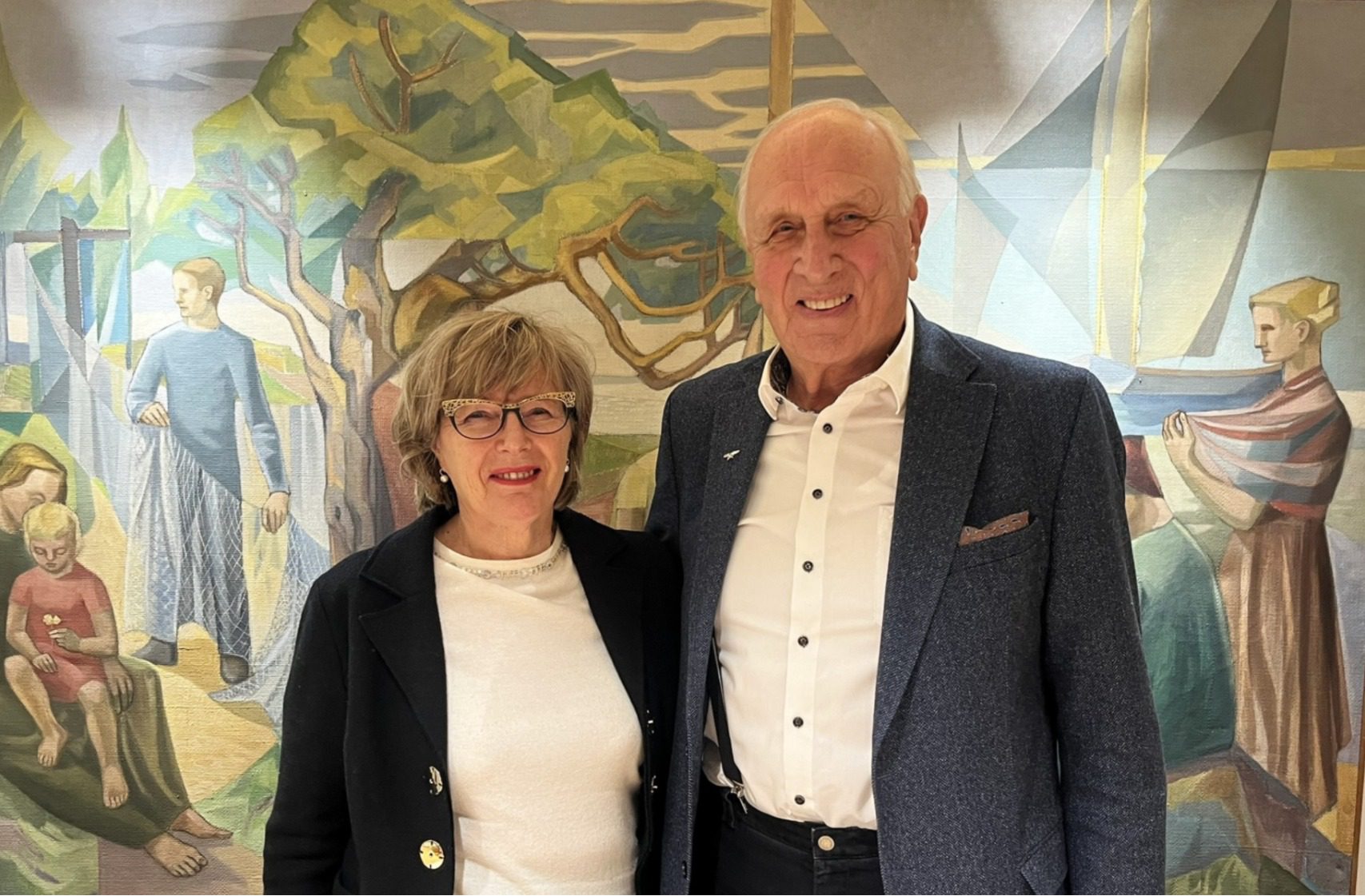SUPPORT FOR RESEARCH AND THE FUTURE – TYKS FOUNDATION 25 YEARS
The TYKS Foundation was established in autumn of 1999 and 2025 will be its 25th full year of operation. The foundation will celebrate its anniversary by fulfilling its basic mission – by distributing grants to medical and health science researchers in the Turku region and by maintaining a research unit on Sirkkalankatu, which provides working space for eighteen researchers.
The foundation will publish its history during the year and celebrate its anniversary with a gala in November.
During its operation, the foundation has amassed significant investment assets, the income from which it can contribute to supporting the work of researchers at the beginning of their careers, in particular. The donors who have supported the foundation over the years are important to us. We still need supporters, says Minna Lukkarinen, Executive Director of the TYKS Foundation, a specialist in pediatrics.
Anniversary grants
The TYKS Foundation provides broad support for research in medicine, nursing and health sciences that benefits diagnostics and the development of patient care.
A total of 247 researchers applied for grants in the spring call. Of these, 35 researchers in medicine and 12 in nursing and health sciences were awarded support for work, and 32 researchers were awarded travel grants. The majority of those supported are doctoral researchers, i.e. researchers at the beginning of their careers.
The following are three examples of research projects supported in 2025:
Licentiate of Odontology Juuso Arkkila: The connection between dental fear and temperament and personality in the FinnBrain and Northern Finland 1966 and 1986 cohorts (€5,000)
A third of Finns suffer from some degree of dental fear, and almost one in ten suffer from severe dental fear. Dental fear is therefore very common. The research delves into the previously uncharted topic of the connection between temperament and personality and dental fear in the adult population using large population data. In addition to identifying the factors of fear, the aim is to study the behavioral psychological characteristics of those suffering from severe dental fear and to deepen research knowledge about the connection between psychological disorders, such as generalized anxiety and depression, and fear.
The research is supervised by Professor of Social Dentistry Satu Lahti and Docent Vesa Pohjola. The research is being conducted at the University of Turku.
MD Konsta Kuusento: Changes in hair cortisol during retirement (Geriatria, €3000)
Changes in retirement have so far been measured using subjective measures, such as interviews and questionnaires. More objective measures have only been used to a limited extent. Our aim is to measure changes in the body’s stress hormone, cortisol, in hair samples during retirement in a longitudinal setting. In addition, the aim is to determine whether work stressors, such as shift work, are associated with changes in hair cortisol.
The dissertation is part of the Finnish Retirement and Aging study. FIREA is a study initiated at the University of Turku in 2013, the main purpose of which is to investigate changes in lifestyle, health and functional capacity and the factors affecting them during and after retirement. The supervisor is Sari Stenholm, Professor of Public Health, who is also the principal investigator of FIREA.
Psychologist Maija Juntunen: Cognitive and academic performance and psychosocial development of children adopted to Finland in the 2000s at the age of eight (3000€)
“I am writing my doctoral dissertation in the FinAdo-2 research project founded by my supervisor, Docent Helena Lapinleimu, which investigates the health, well-being, development and adaptation of 150 children adopted internationally to Finland in the 2000s. The sub-studies of my dissertation investigate the cognitive performance, learning and psychosocial well-being of adopted children in the second grade, as well as the risk and protective factors affecting these. Regarding risk factors, it is interesting to find out whether, for example, the early growth conditions prevailing in the child’s country of birth, such as institutional or family placement or the number of placements, affect the cognitive or psychological well-being of the adopted child at school age. Also the physical health of the adopted child during the adoption phase, and the interaction between the adopted child and parent and the changes in its quality after adoption can predict the child’s cognitive and psychological well-being at school age.
Based on the research, we can detect possible support needs of adopted children more in time than before and offer help in a timely manner. We can serve neuropsychologists and psychologists working in clinical work by also providing recommendations on screening methods for the developmental and psychosocial development of adopted children, as well as other methods and timing of neuropsychological research.”
FURTHER INFORMATION:
Executive Director Minna Lukkarinen, email: minna.lukkarinen (at) utu.fi and tel. 040 701 7876



